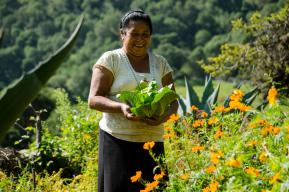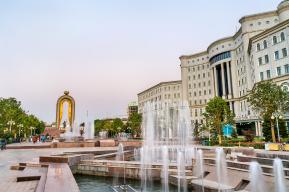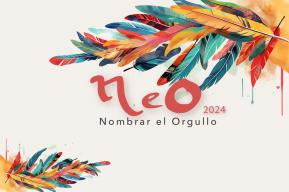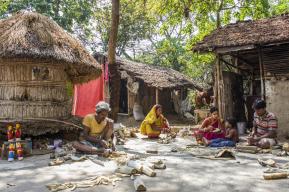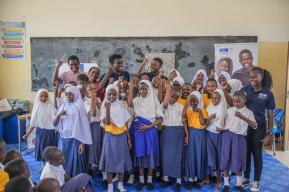Project
SDG Renewable Energy Fund Programme

Welcome to the SDG Renewable Energy Fund Programme in Zimbabwe
Programme Name: SDG Renewable Energy Fund
Location: Zimbabwe
Duration: 01/04/2022 to 31/03/2026
Donor: Joint SDG Fund
Implementation partners: UN Resident Coordinator's Office, UNESCO, UNDP, UN Women, Old Mutual, Government of Zimbabwe
Lead Agency: UNESCO
Why the SDG Renewable Energy Fund Programme?
Joint SDG Fund supports countries in accelerating progress towards the Sustainable Development Goals (SDGs) by integrating economic, social and environmental policies and applying multi-dimensional and cross-sectoral approach to complex social challenges. A broad range of partners have strategically invested in SDG acceleration that is tailored to different country context.
In Zimbabwe, the Joint SDG Renewable Energy Fund programme aims to address barriers to financing in the renewable energy (RE) space. This is done by catalysing local investments through the establishment of the SDG Renewable Energy Fund (SDG REF) which seeks to leverage local financial markets to support investment worthy renewable energy projects with positive social impact for the accelerated achievement of SDGs in Zimbabwe. The joint programme will, therefore, demonstrate how UN support drives the innovative model of Accelerated Local SDG Achievement (ALSA), and economic empowerment of communities through the transformational impact of introducing renewable energy technology with new entrepreneurship opportunities, income and job creation, and improved quality of life and the environment. The joint programme emphasizes gender responsive and inclusive renewable energy investments with a focus on productive uses. To address capacity gaps in pre-investment, investment and post-investment stages, the Partnering UN Organizations (PUNOs), through the joint programme, will leverage partnerships with international renewable energy-capacity building organizations and local money markets to increase access to funding by SMEs.
The Renewable Energy Fund is of paramount importance in unlocking domestic and international capital for investments into high impact SMEs and business ventures and kick-start the required initiatives and focus to achieve an RE-based pathway.
Which Goals are covered by the Programme?
The SDG RE Fund Programme directly contributes to the achievement of Sustainable Development Goal 7: "Ensure access to affordable, reliable, sustainable and modern energy for all”.
SDG 7 has five targets to be attained by 2030.
Target 7.1: Universal access to modern energy
Target 7.2: Increase global percentage of renewable energy
Target 7.3: Double the improvement in energy efficiency
Target 7.a: Promote access to research, technology and investments in clean energy
Target 7.b: Expand and upgrade energy services for developing countries.
Target 7.a and Target 7.b are means of attaining targets.
Renewable Energy provision and access directly contributes to the achievement of Sustainable Development Goals 5,7,8,9,13 and 17. However, the main challenge associated with provision and access to clean and affordable energy is lack of access to financing for renewable energy projects. This is largely due to lack of private sector participation.
Benefits of the SDG REF Programme
Zimbabwe is currently facing an acute energy crisis with an overall electrification rate reported as low as 44% in 2020, with supply of electricity for productive uses failing to meet demand. This has consequently resulted in loss of production in key economic sectors such as agriculture, mining and tourism value chains. Not only is the energy deficit more prominent in rural areas, but also women and youth are disproportionately affected. Overarching issue of inadequate financing and conducive investment terms for renewable energy and climate change projects remains an issue in the country.
The SDG Renewable Energy Fund is of paramount importance in unlocking domestic and international capital for investments into high impact SMEs and business ventures and kick-start the required initiatives and focus to achieve a RE-based pathway. The overall approach of the Joint SDG Fund Programme (JP) is based on the innovative model of Accelerated Local SDG Achievement ALSA, where the JP interventions are designed to use Renewable Energy uptake and capacity building initiatives to create an economic spinoff which will have catalytic effects in inducing growth in other related sectors through increased energy access. Since it is one of the first large-scale demonstrations in the region, insights from such demonstration and dissemination will be shared with SADC Secretariat and SADC Member states to further enable adoption of the ALSA Model in the region. By providing technical assistance to projects without necessary financial resources to access finances but whose projects been approved for funding, the JP also aims to bridge the gap that exists in the market and promote project implementation.
The Joint SDG Fund Programme aims also to de-risk investment in Renewable Energy and foster the integration of small-scale RE businesses in the energy value chains through capacity building. The capacity building is especially aimed at women and youth which will lead to the proliferation of green energy enterprises, particularly those led by women and youth to foster the integration of small-scale RE businesses in the energy value chains.
Main Achievement
The main achievement under the Joint SDG Fund Programme is the establishment of a Renewable Energy Facility to strategically leverage private sector to facilitate the growth of a gender responsive Renewable Energy Sector. The programme will also lead a full-scale demonstration of concept of Renewable Energy Fund funded and pipeline projects driving an innovative model of accelerated Local SDG Achievement (ALSA) and socio-economic empowerment of rural off-grid communities involved in various value chains. Increased capacity of SMEs, in particular/prioritizing women and youth enterprises to develop, access RE finance and implement RE projects.
Expected Results
In addition to the SDG REF adopting a gender-responsive approach to selecting RE projects, skill enhancement and capacity building initiatives, targeted towards encouraging women and youths to become active agents in the RE value chains will help achieve the targets of Goal 5: Gender Equality.
Widespread uptake of RE across Zimbabwe is expected to lead to enhanced energy access facilitating productive uses, particularly in marginalized and vulnerable communities, thereby leading to strengthening of livelihoods and empowerment, helping to achieve Goal 7: Affordable & Clean Energy.
It is projected that REF financed RE enterprises will generate employment opportunities and new green jobs in the RE sector. These outcomes collectively will indirectly help achieve Goal 8: Decent Work & Economic Growth.
The proliferation of green energy enterprises, particularly those led by women and youth through the REF would foster the integration of small-scale RE businesses in the energy value chains, thereby leading to the attainment of Goal 9: Industry, Innovation, and Infrastructure.
In contrast to projects that employ conventional energy and fossil fuels, clean energy projects under the JP focus on ensuring reduced emissions for achieving Goal 13: Climate Action.
Finally, the REF can be a key that unlocks public- private partnerships in the RE sector and fosters dialogic engagement between RE project financiers and developers. This would be critical for achieving Goal 17: Partnerships for the Goals.
UNESCO’S Role in the Project
UNESCO is the lead UN Agency under the Joint Programme. The overall implementation of the JP will be managed by four PUNOs – UNESCO as lead agency, UNDP, UNWOMEN and UNCDF - with the Resident Coordinator's Office ensuring coordination and taking the lead responsibility for ensuring progress and that the JP meets its objectives. A Programme Coordinator (PC), is housed in the lead Agency, UNESCO, and is integrated at a central level to oversee the overall coordination of the JP. Considering the complexity of interventions and the presence of multiple stakeholders, a Focal Point was designated for each of the two other PUNOs.
UN SDG REF Programme Coordinator
Malven Matongo
m.matongo@unesco.org




